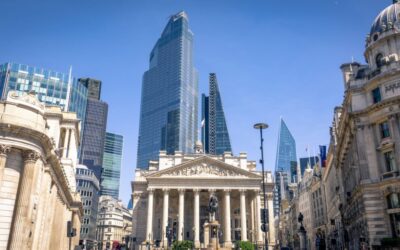By Samed Bouaynaya, Portfolio Manager of the Global Billionaires Fund
For much of this century wealth appeared to be flowing steadily away from the traditional bastions of capitalism – Western Europe and North America – to the BRICs and other emerging markets. The number of their billionaires increased from a handful to a veritable crowd.
Russian oligarchs bought fleets of superyachts, football clubs and mansions in Surrey. Chinese billionaires, second only to the US in number, listed their tech stocks and after-school education companies on the NYSE, while in India the number of billionaires grew year on year. Although Brazil continued its cycle of promise, underperformance and disappointment, the global economy seemed to be heading inexorably East.
Except that now that trend has reversed. In the past 18 months war in the Ukraine, Covid and falling stock markets have had a radical impact. In the Forbes 2022
Billionaires list, published in April, which ranks the world’s 2668 richest people the number of Chinese entrants dropped by 12.5%. Russia lost 34 names. Having a vested interest in the fortunes of global billionaires got me wondering:
“What are the optimal political and economic environments that will encourage billionaire-owned businesses to flourish, and thereby make compelling investment opportunities?”
In a nutshell: right market, right time, right technology, right economic environment… and political stability. In the 19th Century Great Britain ticked all those boxes. Technologically the nation was at the forefront of the industrial revolution in both manufacturing and transport (steamships and railways); it had both a geographical empire and global markets to exploit and the hard-military power to enforce her will.
Today the USA, China, the European Union (excluding the UK) and India comprise 45% of the world’s population and 76% of its GDP. It helps to have a big domestic market with growing spending power to rely and build on without the hassle of import duties and export tariffs.
The EU, with 6% of the world’s population and 25% of GDP, is the only supranational body on the list which may help answer a different question: why are European billionaires like Bernard Arnault, Francois Pinault and Amancio Ortega so good at creating luxury good conglomerates and international retail giants?
Political stability is essential. There needs to be a balance between government encouragement and a consistent regulatory and legislative framework that allows entrepreneurs to build businesses, to take risks and reap rewards. As China has shown, democracy is not the only political system that can create the right economic environment for billionaire-built businesses to flourish but central government control sometimes comes at a price. As China and Russia have discovered.
Chinese growth hit the buffers in the middle of last year when President Xi Jinping announced his new policy of “shared prosperity” and “controlling risks” which was in effect a new tax and a not very subtle reminder of who was really in charge of the Chinese economy. He also introduced changes into the regulatory landscape which made prominent Chinese billionaires like Jack Ma and Ma Huateng a little less rich (and less powerful) by forcing them to make extravagant donations.
In our fund Chinese billionaires lost just over 20% in 2021. The Hang Seng was down 13%, and the Hang Seng Tech Index almost 30% in a year when the S&P 500 and Nasdaq gained around 27%. While Putin did bring stability to Russia after the chaos of the Yeltsin years war, its geopolitical consequences can reduce an economy to rubble as effectively as any missile.
While it is hard to predict the long-term impact of the sanctions on Russian billionaires’ personal holdings and their companies much of the country’s wealth has been built on exploiting natural resources and endemic corruption. One only has to look at Venezuela for an example of how badly things can go.
By contrast India, the world’s largest democracy, enjoyed a blockbuster year for IPOs in 2021. The total number of its billionaires rose 19% to a record 166 with a
combined wealth up 26% to $750 billion. Interestingly the country’s two richest tycoons Mukesh Ambani and Gautam Adani have invested billions leading India’s switch to green energy over the next decade. An expanding middle class and a ruling government that encourages entrepreneurs and high-tech development are significant tailwinds.
Yes, there are political storm clouds brewing and allegations of corruption but India’s 3% of global GDP will continue to grow. For the past 200 years the most successful business people have understood how to harness, develop and effectively exploit new and disruptive technologies. The USA continues to lead because its relatively low tax, light touch regulatory framework and huge reserves of capital begging to be invested encourages innovation.
India and China have the advantage of huge numbers and government support for tech infrastructure and education. China notably takes the long view, so the current supply chain issues exacerbated by their Covid lockdowns, will pass. Which leave the EU as the outlier. Its reputation as the world’s regulator and its
higher taxes mean it can barely compete on production costs. But with 25% of the world’s GDP the EU is still a huge market. And apparently millions of people still want to own a Louis Vuitton handbag.




